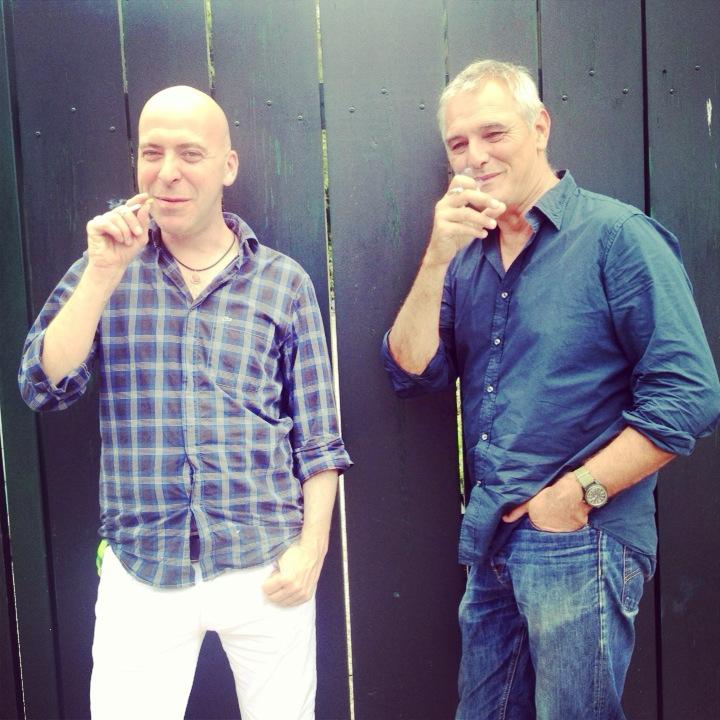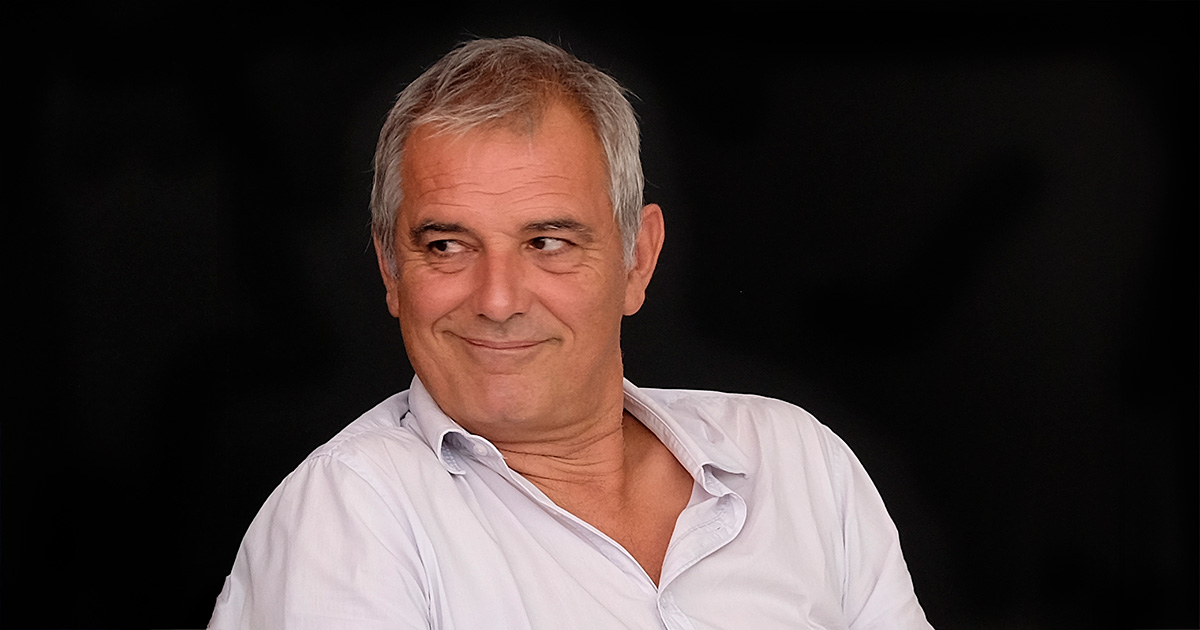The farewell from the Giornate degli Autori to Laurent Cantet, director and screenwriter who was President of the 27 Times Cinema jury in 2015.
Our paths first crossed in 2014 when his film “Retour à Ithaque” unanimously won the first competitive edition of Giornate. The jury, composed of 27 young filmgoers from different European countries and chaired by Diego Lerman, wanted its statement to read: “Within a delimited place and time, the director manages to create an emotional and complex narrative about facing the secrets of the past.”
Laurent Cantet arrived at Giornate, six years after the Palme d’Or for “Entre les murs,” bringing the shyness and humility that only the greats can feel and show. He discovered the independent sidebar of the Venice Film Festival, founded by the Italian filmmakers’ associations, with the charming enthusiasm of a young man experiencing it for the first time. We immediately liked each other unreservedly, so much so that the following year Cantet enthusiastically agreed to return to Giornate as President of the jury. Today, with his demise, we receive the news with sadness and dismay, as happens when a friend and a young maestro leaves us, leaving us feeling suddenly more alone.
We met again at Cannes in 2017 when his collaborator and friend Robin Campillo won the Grand Prix with the moving “BPM – 120 battements par minute,” to which Laurent had contributed, and which he celebrated as if the victory were his own. In those same days, he was present in the Un Certain Regard selection with “L’Atélier.” “It’s not a competition film,” he said to us, “but I am happy to realize my idea of cinema once again in this work: as an open workshop which the viewer can join, to be part of an education and evolution that was an intense commitment for me and the young students of La Ciotat with whom I shared our efforts, dreams, and the search for personal expression for months on end.”
More recently, our paths crossed again, as festival companions and stirred spectators before films that Laurent was curious about, enthusiastic, and generous. Because this was his inimitable personal hallmark: the desire to be close to those who are starting out, to those who fight for noble causes, to those who have no voice and yet have the right to be heard, whether that person is a Cuban seeking freedom, an undocumented immigrant without any rights, a civilian without defenses, or a hostage in Palestinian territory. In this profession, we encounter artists, creators, and intellectuals. Sometimes, however, it is their traits of humanity and compassion that linger in our hearts, even above and beyond their remarkable talent. It is precisely this value that we will carry within us when thinking of Laurent Cantet.
Gaia Furrer
Giorgio Gosetti

Sylvain Azou, Laurent Cantet
Giornate degli Autori, 2015


